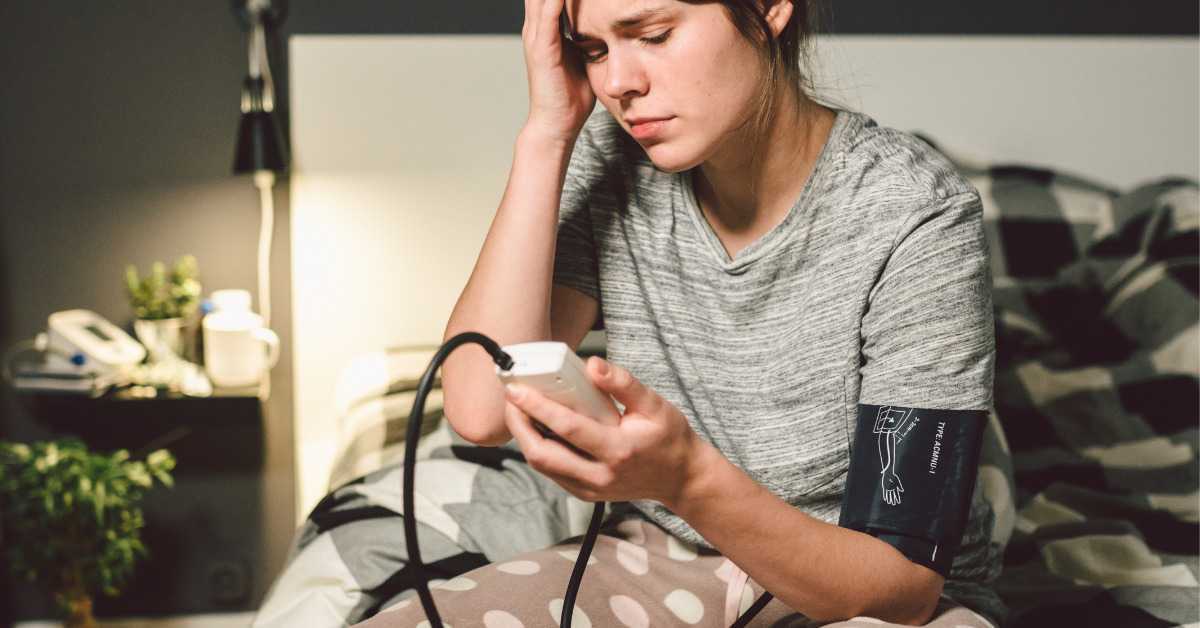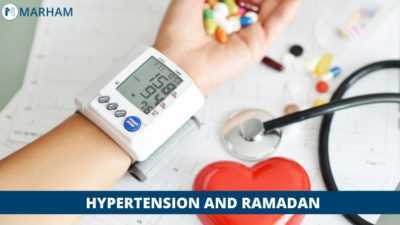Hypertension Patients Should do this Before Ramadan; HERE you go with all the details you need to know about hypertension and Ramadan. Hypertension, often known as high blood pressure, affects at least one-third of the world’s population and is responsible for 9.4 million deaths each year. According to a survey performed by the Dubai Health Authority, hypertension is very common among Emiratis, with 40.8 percent of Emirati individuals between the ages of 35 and 70 suffering from it.
Because people can go years without discovering they have hypertension, it is often known as the “silent killer.” People are not aware that they have the disease until they start experiencing symptoms such as persistent headaches, exhaustion, or eye pain, which they treat with painkillers and multivitamins. TALK TO A DOCTOR FOR SOLVING YOUR ISSUE OF HYPERTENSION


Hypertension and Ramadan; Everything you need to know
Fasting in the complete holy month of Ramadan is a spiritual activity that might be difficult to maintain for someone suffering from hypertension. People who fast during the day and have considerable changes in their eating and sleeping schedules can experience blood pressure swings. There are a lot of misconceptions present about hypertension and Ramadan fasting.
One common misconception is that fasting is harmful to one’s health and that those with hypertension should not fast. Most recent research suggest that people with mild to moderate hypertension who are well-managed with healthy lifestyle practices and medicines can fast safely without compromising their health.
During Ramadan, they run the risk of their blood pressure skyrocketing. Dr. Srinivasan Ravindranath, a specialist cardiologist at Aster Clinic, Al Muteena (DMPC) , recommends consulting with a specialist to discuss and decide on medications to be taken for the month of Ramadan. Although there is no permanent cure for hypertension, the symptoms can be managed and the illness can be prevented from worsening. Hypertensive individuals should drink plenty of water and avoid sweetened juices to avoid dehydration.


Caffeine and caffeinated drinks should be avoided because they can induce dehydration and other problems. Fresh fruits and vegetables can help lower blood pressure and should be included in Iftar and Suhoor meals. Blood pressure can be controlled by avoiding high-fat foods and ingesting low-fat dairy products. People with hypertension should always be aware of their health and be on the lookout for symptoms such as headaches and dizziness. Even during Ramadan, exercise is necessary to keep the body active. Physical activity also lowers and regulates blood pressure.
Smoking is a source of high blood pressure, and Ramadan is an excellent time for smokers to quit because it raises systolic pressure, which increases the risk of heart disease and stroke. Even though diabetes and cholesterol are not directly related to hypertension, they are vitally significant in lowering the risk of cardiovascular disease. Adopting a cleaner and healthier lifestyle can help prevent hypertension and its problems from developing.
DON’T TAKE A RISK NOW, CLICK HERE TO BOOK AN APOOINTMENT WITH THE BEST DOCTORS OF YOUR CITY.


Bottom Line
Regular examinations are usually recommended to ensure that Hypertension is detected early and that future issues are avoided. Weight loss, frequent exercise, and a reduced salt and alcohol intake are all part of a healthy lifestyle. If lifestyle modifications are made, they can assist to reduce difficulties to a large extent. Every year on May 17th, World Hypertension Day is observed to promote awareness about the condition, its implications, and treatment options. This year’s theme is ‘Know Your Numbers,’ which encourages people to monitor and measure their blood pressure on a regular basis.
Consult with the Top General Physicians of your City
Book an appointment now, to answer all your queries. You can book an appointment with the best General Physician through Marham by calling at Marham helpline: 0311-1222398 or by online booking facility through the website or Marham mobile app.
Can’t Find The App?
| Android | IOS |
|---|---|
  |
  |
FAQ’s
Can I do Ramadan with high blood pressure?
Fasting during Ramadan is safe and may reduce blood pressure – at least briefly – in both healthy and hypertensive people*. These are the findings of Imperial College London researchers’ LORANS study (London Ramadan Study), which were published in the Journal of the American Heart Association.
When should I take my blood pressure medicine during Ramadan?
The majority of drugs for patients with high blood pressure must be taken once or twice a day. These drugs usually have a 12- to 16-hour effect. The tablets can be taken in the morning for Suhoor and in the evening for Iftar. It’s possible that this will assist lower blood pressure.
How can I bring my blood pressure down immediately?
Outside of a medical context, there is no rapid and safe way to reduce blood pressure. Exercise, diet, and stress-reduction practices can all help to naturally lower blood pressure.

